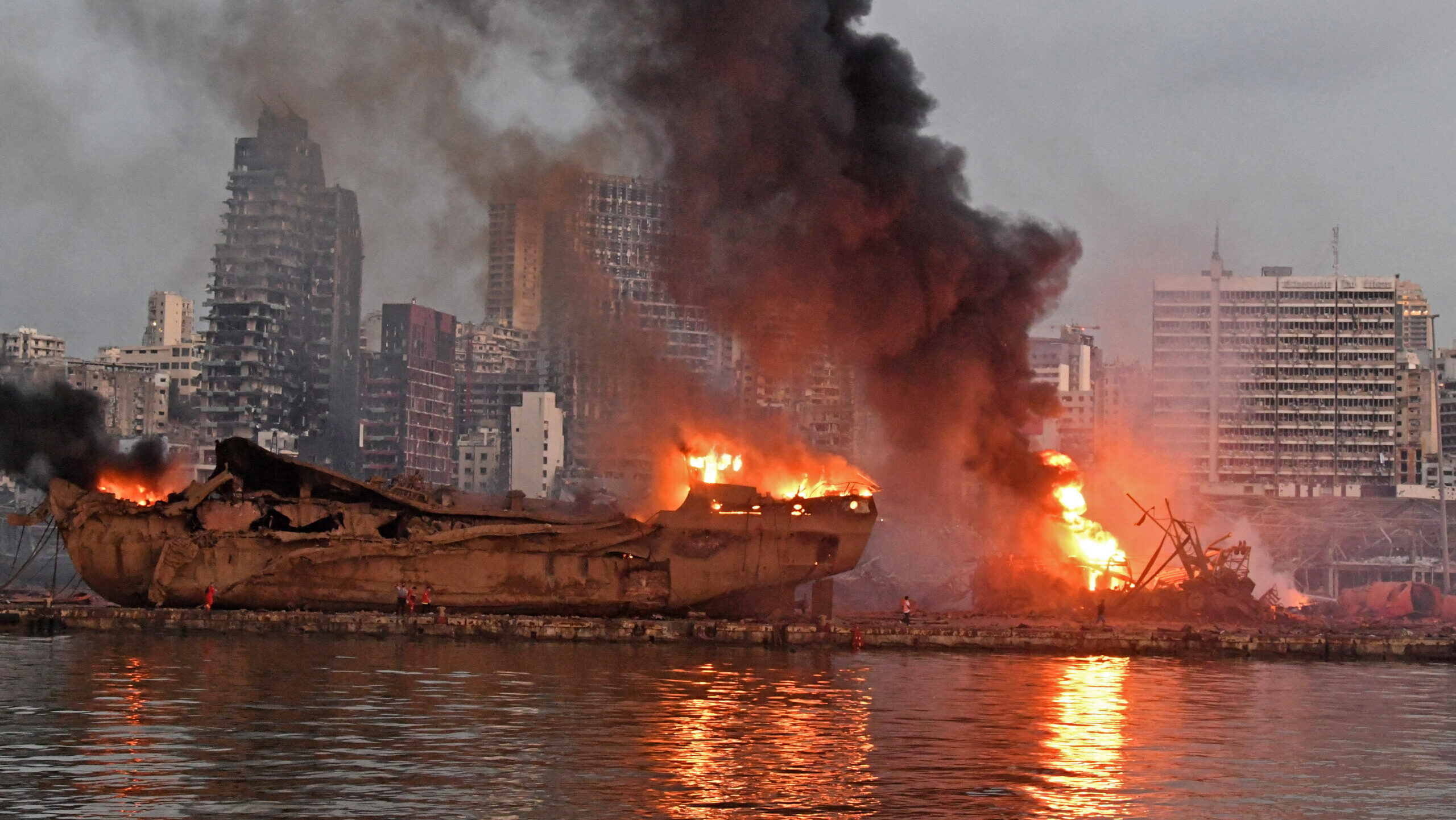Beirut Blast Investigation Restarts After Years of Political Obstruction
Judge Tarek Bitar resumes his inquiry into the 2020 port explosion following years of delays and growing pressure for accountability
[Beirut] When Mariam Hakobyan hung up the phone in her office in the western Beiruti neighborhood of Hamra, the ground shook. It was August 4, 2020. Unsure of what had happened, she took her usual route home. In the Gemmayze neighborhood, just 1,500 meters from the port, she became trapped for two hours. Bloodied people, shattered buildings, and glass everywhere painted a harrowing picture of her city.
“For two days, I was paralyzed, unable to get out of bed,” she told The Media Line.
Hakobyan will never forget that day—like many Lebanese. In just a few seconds, the explosion, triggered by a fire at warehouse number 12 in the port, killed more than 200 people and injured around 6,500. Approximately 300,000 people were immediately left homeless, and another 70,000 lost their jobs in a country already in economic free fall. In the immediate aftermath, the political class promised that an investigation would clarify the causes of the explosion within five days. Four and a half years later, Lebanese society is still waiting for answers.
Now, after two years of obstruction by Lebanese authorities, the lead investigator in the Beirut port explosion case, Judge Tarek Bitar, has resumed his work. The investigation had been effectively stalled since December 2021 due to political interference. Earlier this year, after more than two years without a president and with only a caretaker government in place, Lebanon elected new leaders. Both Prime Minister-designate Nawaf Salam and President Joseph Aoun declared in their inaugural speeches that there would be no interference in the judiciary’s work.
Aoun and Salam, both seen as political outsiders, have voiced support for the separation of powers. But Lebanese institutions, including the judiciary, have been weakened by decades of political interference with virtually no consequences. No political leader has ever been held accountable for crimes or financial corruption.
“Every time you see the faces of those who lost family members or friends, you can’t help but get angry at the world, at those responsible, at justice,” Hakobyan said.
Give the gift of hope
We practice what we preach:
accurate, fearless journalism. But we can't do it alone.
- On the ground in Gaza, Syria, Israel, Egypt, Pakistan, and more
- Our program trained more than 100 journalists
- Calling out fake news and reporting real facts
- On the ground in Gaza, Syria, Israel, Egypt, Pakistan, and more
- Our program trained more than 100 journalists
- Calling out fake news and reporting real facts
Join us.
Support The Media Line. Save democracy.
Every time you see the faces of those who lost family members or friends, you can’t help but get angry
Judge Bitar had planned to resume the investigation in mid-September, but an Israeli airstrike—detonating thousands of pagers and walkie-talkies linked to Hezbollah—forced a delay. Following the political shift, Bitar, who has led the investigation since 2020, managed to reopen the case in February. Since then, he has conducted weekly interrogations, including with then-Prime Minister Hassan Diab and former Interior Minister Nohad Machnouk.
Bitar has also questioned many officials from state security services. His investigation—supported by most of the victims’ families—includes around 60 defendants with varied backgrounds. These range from public security chiefs to rank-and-file port workers, as well as at least five former cabinet members. The case targets the Ministry of Finance, which oversees customs, and the Ministry of Public Works and Transport, responsible for storing thousands of tons of explosives in the hangar.
It has been confirmed that both current and former political leaders were aware of the ammonium nitrate stored at the port. The 2,750 tons of the explosive compound arrived in Beirut in 2013 aboard a ship that was abandoned due to technical issues. The cargo was offloaded into port warehouses, and no one claimed it. Employees of the Ministry of Finance reportedly sent up to six letters warning superiors about the danger of keeping it there.
“This is the first crime in Lebanon alone that really touched the population as a whole, not only the families affected,” said Sarah, whose relative was killed in the explosion. She declined to give her full name out of fear of reprisal. “This is not negligence by the political class; this is a crime against humanity and against the population in Lebanon, because they knew what ammonium nitrate could do to this country,” she told The Media Line.
This is not negligence by the political class; this is a crime against humanity
Sarah is aware that “reaching justice is very hard here in Lebanon.”
“The judge has had a lot of struggles because the politicians interfere, and they try to do everything to stop the road to justice,” she added. But Hezbollah, the judge’s most vocal critic, has been significantly weakened. The group, both a militia and a political party, is currently focused on rebuilding after the harsh Israeli military campaign last autumn.
Multiple factors now seem to have aligned, offering a rare opportunity for the investigation to advance. For the families of the victims, this is a critical moment to see justice served.
This is not only for the victims, this is for Lebanon
“This is not only for the victims, this is for Lebanon,” Sarah said. “We need a change here.”



